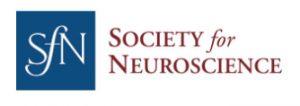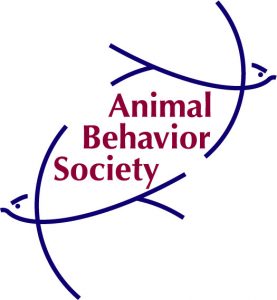Connect with the broader neuroscience community via professional societies
 The Society for Neuroscience is the world’s largest organization of scientists and physicians devoted to understanding the brain and the nervous system.
The Society for Neuroscience is the world’s largest organization of scientists and physicians devoted to understanding the brain and the nervous system.
Founded in 1969, the Society for Neuroscience (SfN) has over 30,000 members in more than 95 countries. Year-round programming includes the publishing of two highly regarded scientific journals, JNeurosci and eNeuro; professional development resources and career training through Neuronline¸ the Society’s home for learning and discussion; science advocacy and public policy engagement including annual Capitol Hill Day; and a variety of engaging public outreach efforts, led by the expanding and interactive collection of public-facing resources on BrainFacts.org.

The International Society for Neuroethology is a scholarly society devoted to neuroethology: the study of how nervous systems generate natural behavior in animals.
Neuroethology is a relatively young science. Early brain anatomists like Ramon y Cajal and Camillo Golgi revealed the intricate structure of brains and neurons, but it wasn’t until the mid-20th century that researchers began to understand how neurons actually worked. Alan Hodgkin and Andrew Huxley (studying the giant axon of squid) worked out how neurons generated action potentials, researchers’ ability to record from active neurons increased dramatically. Nevertheless, being able to record neural activity from an actively behaving animal remains a major challenge in many cases.
Neuroethology arguably became a distinct research field, as opposed to a few talented but somewhat isolated scientists, in the late 1960s and early 1970s. This success was driven by steady technical advances in recording from, and identifying, individual neurons. The International Society for Neuroethology formed in Kassel, Germany in 1981.
 The Animal Behavior Society (ABS) is a non-partisan, non-profit, 501(3)(c) professional organization dedicated to promoting and advancing the scientific study of animal behavior, and to creating an inclusive scientific environment that supports a diverse membership. Members of ABS study behavior across all levels of biological organization, under natural and controlled conditions, and using descriptive and experimental approaches. Together with its sister organization, the Association for the Study of Animal Behaviour (ASAB), ABS edits the field’s flagship scientific journal, Animal Behaviour. ABS also promotes both emerging and established scientists by sponsoring annual research conferences, educational programs, outreach activities, student research grant competitions, and a professional certification program. In all its endeavors, ABS is committed to ensuring a safe and welcoming environment for its members.
The Animal Behavior Society (ABS) is a non-partisan, non-profit, 501(3)(c) professional organization dedicated to promoting and advancing the scientific study of animal behavior, and to creating an inclusive scientific environment that supports a diverse membership. Members of ABS study behavior across all levels of biological organization, under natural and controlled conditions, and using descriptive and experimental approaches. Together with its sister organization, the Association for the Study of Animal Behaviour (ASAB), ABS edits the field’s flagship scientific journal, Animal Behaviour. ABS also promotes both emerging and established scientists by sponsoring annual research conferences, educational programs, outreach activities, student research grant competitions, and a professional certification program. In all its endeavors, ABS is committed to ensuring a safe and welcoming environment for its members.
You must be logged in to post a comment.